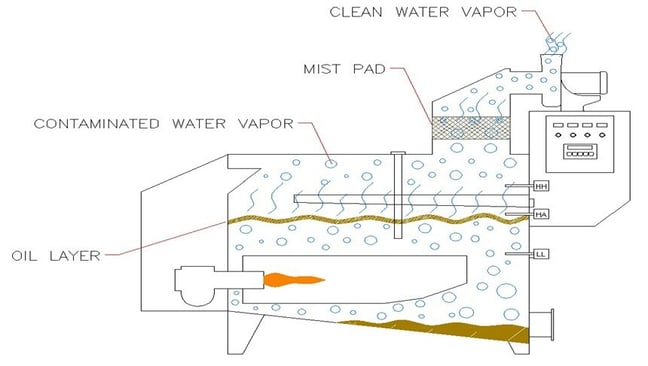
What is Wastewater Evaporation?
- Home
- »
- Evaporation Technology
- »
- What is Wastewater Evaporation?
What is Wastewater Evaporation?
Industrial wastewater evaporation is a time-tested method for reducing the water portion of water-based wastes. In it’s simplest form, the evaporator converts the water portion of water-based wastes to water vapor, while leaving the higher boiling contaminants behind. These wastewater evaporation solutions greatly minimize the amount of waste that needs to be hauled off-site.
The evaporation process itself involves both a thermodynamic and mass transfer phenomena.
The thermodynamic phenomenon of evaporation involves providing enough heat energy (waste oil, off-spec gas, natural gas, propane, oil, diesel, electricity, or steam) to convert water to water vapor.
The mass transfer phenomenon of evaporation can best be described as the “carry off” of small droplets of water. These droplets are created at the surface of vigorously boiling water and are “carried off” by oversized blowers or unfiltered water vapor (see figure 1).
This “carry off” is problematic with wastewater applications since the droplets of water may have contaminants such as soaps, metals, or oils entrained in them, thus causing an environmental impact outside the building.
This “carry off” of droplets is minimized on all ENCON wastewater evaporators through use of a mist eliminator (see figure 2) and other design considerations.
